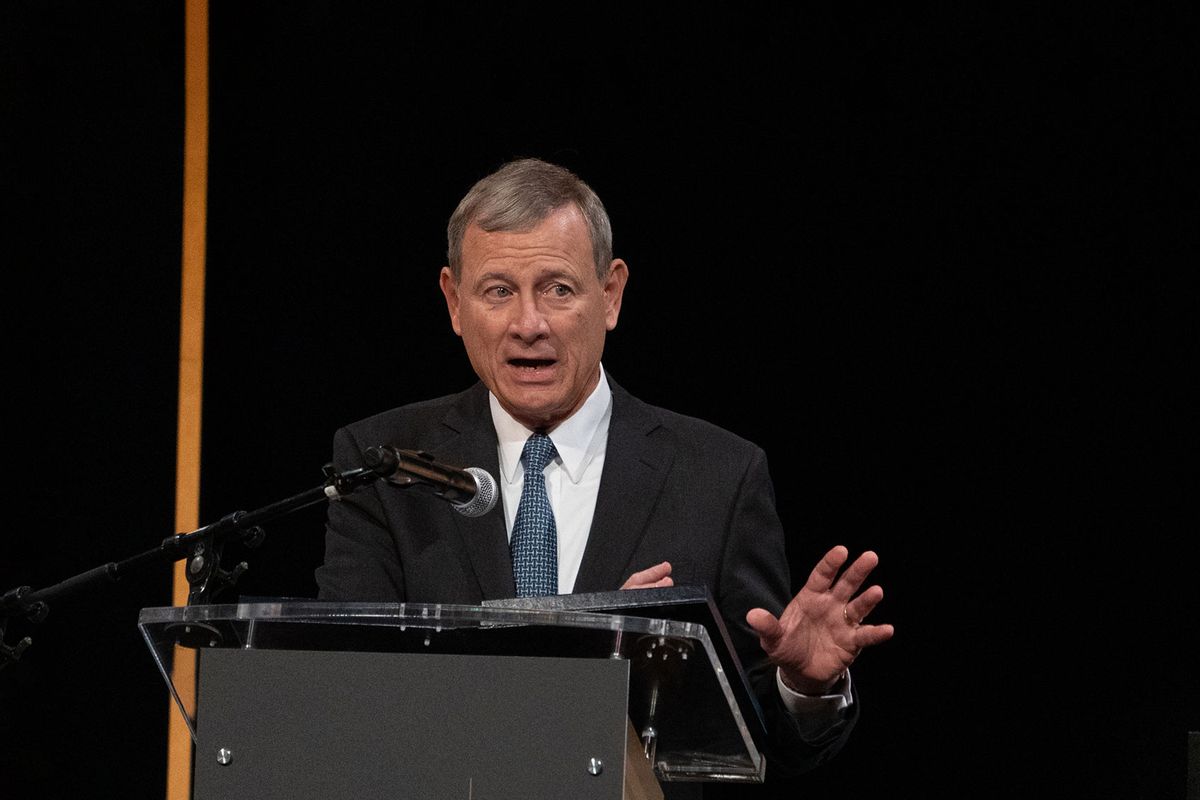U.S. Supreme Court Chief Justice John Roberts is politely refusing to meet with Democratic senators regarding his colleague Samuel Alito's ethical issues, writing in a letter Thursday that to so would raise concerns about the separation of powers and itself create an appearance of impropriety.
"I must respectfully decline your request for a meeting," Roberts wrote to Sen. Dick Durbin, D-Ill., chairman of the Senate Judiciary Committee, and Sen. Sheldon Whitehouse, D-R.I.. Apart from "ceremonial events," Roberts wrote, "only on rare occassions in our Nation's history has a sitting Chief Justice met with legislators, even in a public setting."
The letter came in response to a request for a meeting from Durbin and Whitehouse, sent May 23, following The New York Times' reporting on the flags flying outside Alito's two homes: one an upside-down American flag, the other an "Appeal to Heaven" banner, both adopted by the far-right and supporters of former President Donald Trump.
"By displaying or permitting the display of prominent symbols of the 'Stop the Steal' campaign outside his homes, Justice Alito clearly created an appearance of impropriety in violation of the Code of Conduct for Justices of the Supreme Court of the United States ... that all nine justices adopted last year," they wrote. "He also created reasonable doubt as to his impartiality in certain proceedings, thereby requiring his disqualification in those proceedings as established by the Code of Conduct and federal law."
Last November, following reports that Alito and Justice Clarence Thomas had accepted gifts from wealthy Republican donors, the Supreme Court adopted a Code of Conduct that states as one of its five ethical canons: "A Justice Should Avoid Impropriety and the Appearance of Impropriety in All Activities." Another canon states that justices "Should Refrain from Political Activity."
In his own letter to the senators, Alito blamed his wife for both pro-Trump symbols being raised outside their homes, which he asserted were not political in nature but a product of his wife being "fond of flying flags." But former neighbors and a police phone call directly contradict his claim that the upside-down flag was a response to an interpersonal squabble, not the January 6 insurrection and President Joe Biden's coming inauguration, which Alito did not attend.
Alito said he would not recuse himself from cases involving Trump, including one regarding his claim of immunity from prosecution.
Roberts, in his response to the senators, wrote that it was his "understanding" that Alito had already sent a letter to them "addressing this subject." He said it would be improper to meet with "leaders of only one party who have expressed an interest in matters currently pending before the Court," saying the appearance of partisanship (no Republican senators have objected to Alito's actions) "simply underscores that participating in such a meeting would be inadvisable."



Shares